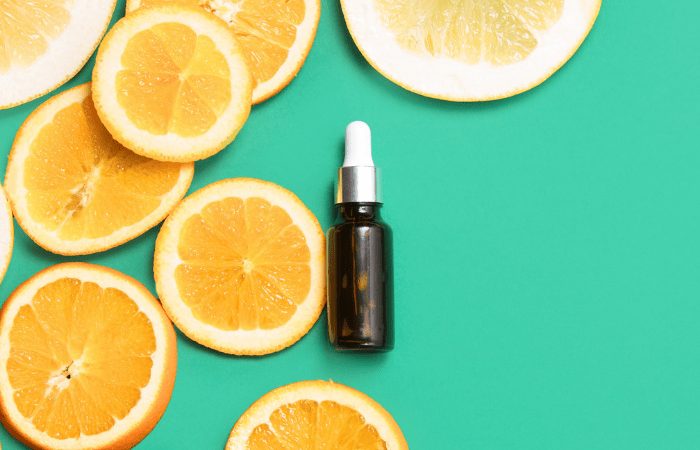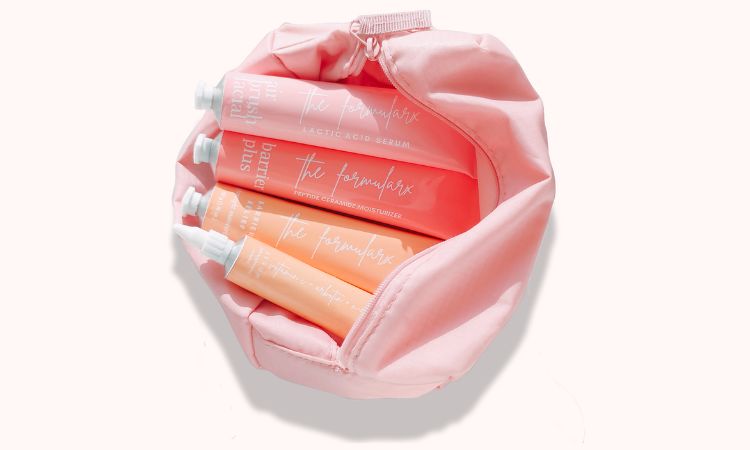It’s not a moisturiser, it’s not a skin toner. So what are serums? They are actually categorised as skin hydrators. As various skin experts have told us, a serum for summer may be exactly what your skin needs. But what do serums really do for your face? Do you actually need one or is it just a marketing ploy to sell expensive products? We’ve always wondered that too. So we asked the experts in the field. We spoke to Dr Jamuna Pai, renowned skincare expert, author and cosmetic aesthetician, and Mahesh Chowdhary, co-founder of Fit & Glow and Wow Cosmetics. Read on to know what they had to say.
What are serums? Why do we need them?
“Serums are lightweight skin care products which deliver a high concentration of nutrients,” Dr Jamuna Pai says. “The molecules in a serum are smaller, hence they penetrate the skin easily to deliver the active ingredients to bring about the best results.”
Basically, the purpose of a face serum is to accelerate the effect of your treatment products. “Serums are ideal when you have more than one skin goal to achieve, like skin brightening along with reducing excess sebum,” Mr Chowdhary says. “They’re perfect for delivering treatment products to your skin.”

Image Source
Does one serum work for every skin type?
Some of us have acne problems while some have dry skin even in the monsoon. But don’t worry, there is a serum for everyone out there. You just have to know what you’re looking for. And we’re here to help. We asked Dr Pai about what kind of serums we should buy, and she broke it down for us.
“There are many varieties of serums available in the market,” Dr Pai says. “If you have dry skin, look for vitamin E and hyaluronic acid. If you have oily or acne prone skin, look for vitamin C or salicylic acid. If you have mature skin, look for retinol in your serum.”
According to Mr Chowdhary, you have to identify your main skin problem before buying a serum. “Your aim in using a serum should be to deal with your most pressing skin issue,” he explains. “It could be fine lines, pigmentation, or dullness. Use a serum to deal with the main problem, and use the moisturiser on top to manage other minor skin problems.”
Okay, got that. But how do we use serums? Like a moisturiser?
Who likes fussy, time-consuming skincare routines, right? With busy schedules and a constant lack of sleep, no one has the time to add one more product to their arsenal. But a serum might be well worth the effort. So we asked Dr Pai and Mr Chowdhary how to use a serum effectively.
“You should apply serum right after cleansing your face,” Mr Chowdhary says. “It should be dotted all over your face and neck and tapped into the skin. Let it soak into the skin for half a minute or so, before you apply your daily moisturiser.”
Unlike a moisturiser, you can’t slather on as much as you like when it comes to serums. There is a level of caution that needs to be exercised.
“Since serums contain a potent cocktail of actives, a little goes a long way,” Mr Chowdhary explains. “Use a drop or two of the product each time. Not more. Do a patch test on your skin to ensure your skin does not react negatively to any of the actives. You should also watch out for the expiry date of the product.”
According to Dr Pai, you need to maintain a balance between your face serum and other skincare products.
“If you have dry skin, a serum can be layered under your moisturiser, during the day as well as at night,” Dr Pai says. “If you are using a topical retinoid at night, it is best to use the serum earlier in the day. Or use the retinoid and serum on an alternate night basis.”

Image Source
I have a facial oil at home. Is it the same as a serum?
It’s easy to confuse facial oils with serums. They’re both supposed to hydrate your skin. But there is a significant difference between the two.
As Dr Jamuna Pai explains, “Facial oils, as the name suggests, are only oil-based. They could be tea tree oil, Moroccan oil, or argan oil. Serums, however, could be water-based as well as oil-based. The active ingredients in them are vitamin E, vitamin C, hyaluronic acid and retinol.”
So which serum do you recommend?
It’s not easy to find the perfect serum for yourself. So we asked Dr Pai and Mr Chowdhary what serums they would choose.
“WOW Skin Science Hydrating Serum with glycolic acid, hyaluronic acid and tea tree oil will keep your skin oil-free and help in skin renewal,” Mr Chowdhary says.
Dr Pai suggests that you go by ingredients. “I prefer a concentrated vitamin C serum and one which contains hyaluronic acid,” she says.

Image Source
Now you know the answer to the widely-asked question, “What are serums?” So do some shopping, ladies, and find the skin serum of your dreams.
We also spoke to Dr Jamuna Pai earlier about the ideal summer skincare routine. Click here to read what she had to say.













